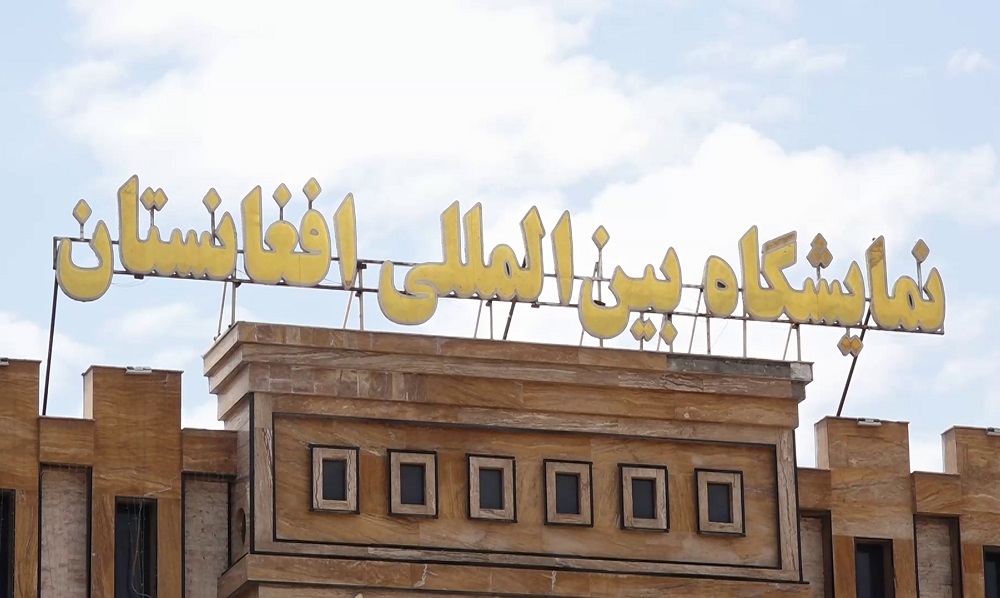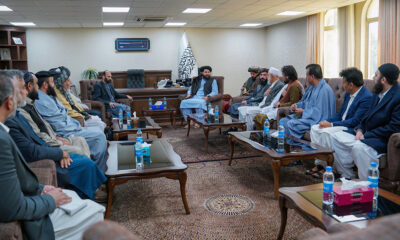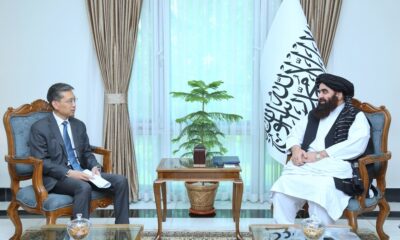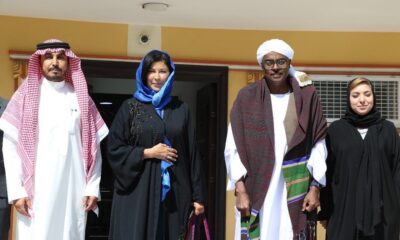Business
Private sector welcomes peace move which could bring enormous investment opportunities

Peace in Afghanistan would provide enormous opportunities for local and international businesses to invest in the country, in turn boosting the economy and aiding in its overall development.
Afghan business owners and leaders in the private sector have said the war has created major obstacles for investors in the country over the past 19 years.
Following President Ashraf Ghani’s decree, issued on Monday afternoon, to release the remaining 400 prisoners so as to pave the way for peace talks, the Afghanistan Chamber of Commerce and Investment (ACCI) urged all warring parties to seize the opportunity to bring about peace so as to improve the country’s dismal economic climate.
“We welcome the Loya Jirga’s decision to release Taliban prisoners, which could have a positive impact on the country’s economic growth,” said Khanjan Alokozai, an ACCI member said.
Officials at the Afghanistan Chamber of Mines and Industries seconded this and said peace in Afghanistan would not only increase investment opportunities but also create much-needed jobs.
“With the release of the prisoners, our hope is that dialogue between Afghans will begin, as this will increase investment in the country,” said Sakhi Ahmad Paiman, deputy director of the Chamber of Mines and Industries.
Ghani’s decree comes a day after the consultative Loya Jirga voted in favor of releasing the hardcore Taliban insurgents, as per the Doha agreement between the US and Taliban in February – which was one condition that needed to be fulfilled before intra-Afghan peace talks could start.
Meanwhile, economic experts are also optimistic about the opportunity for peace and for what is hoped will be the resultant economic growth in the country.
Hakimullah Siddiqui, an economist, said: “Both sides of the war must seize the opportunity to stabilize and grow the country economically, in order to increase economic opportunities.”
Other economists said peace would open up vast opportunities for investments in all sectors, including mining, agriculture, services, energy, and manufacturing.
Talks are expected to officially begin on Sunday, in Doha, Qatar, between government and the Taliban.
The Afghan government’s negotiating team is expected to leave Kabul on Wednesday.
Business
Afghanistan starts exporting via railway to Turkey

The Ministry of Interior says that Afghanistan has started exporting goods to Turkey via the Herat-Khaf railway line.
In a post on X, the ministry said: “Afghanistan’s exports to Turkey started in a calm atmosphere through the Herat-Khaf railway line.”
The ministry added that one train will run daily for a month and then two trains will run daily.
According to the ministry, the security of Khaf-Herat railway line is provided by the guards of the National Public Protection Agency.
Khaf-Herat railway project not only connects Iran and Afghanistan by rail, but also completes a 2,000-kilometer route along the east-west rail corridor from China, through Uzbekistan, to Afghanistan, to Iran, and on to Turkey and Europe.
As a landlocked country, this railway network will provide a safe route to connect with Europe via Iran’s railway network and Iran’s southern ports.
This railway line is strategic for trade between Iran and Afghanistan and will allow six million tons of goods to be sent between the two countries.
Business
Afghanistan, Kazakhstan to hold joint expo in Kabul

A joint expo between Afghanistan and Kazakhstan will be held in Kabul in the next four days, officials said on Sunday.
Officials of the Ministry of Industry and Commerce said that the two-day expo will be held for the purpose of expanding and strengthening trade relations between the two countries.
“This expo will be held as a follow-up of the Kazakh-Afghan international expo, which was held in the city of Astana, Kazakhstan, with the participation of a large delegation of the government and the private sector of the Islamic Emirate of Afghanistan,” Abdulsalam Javad Akhundzadeh, the spokesman of the Ministry of Industry and Commerce, said.
“At this expo, domestic products from different sectors of Afghanistan and the Republic of Kazakhstan will be put on display for two days.”
According to officials, 40 large Kazakh companies, and 40 large Afghan companies will exhibit their products.
Mohammad Saber Latifi, head of the Afghanistan International Expo Center, said that fruits, minerals and commercial services will be displayed at the expo.
During the expo, various memorandums of understanding for the trade of goods are also expected to be signed by companies.
Business
Afghanistan’s economic prospects are bleak: World Bank

The absence of GDP growth coupled with declining external financing avenues for off-budget expenditures paint a bleak picture of Afghanistan’s economic prospects, the World Bank said.
After a severe 20.7 percent GDP contraction in 2021, the Afghan economy contracted further by 6.2 percent in 2022, the bank said in a report.
“While Afghanistan’s agricultural and subsistence economy, including illicit opium production, provided some resilience in rural areas, higher prices, reduced demand, lower employment, and disruptions to services had severe impacts across the country,” it said.
The proportion of households that did not have enough income to meet basic food needs more than doubled from 16 percent to 36 percent in this period, according to the bank.
In the context of deep concerns about the policies of the Islamic Emirate of Afghanistan (IEA), including restrictions imposed on women and girls, the international community, including the World Bank, recalibrated its approach to supporting Afghanistan: first to providing humanitarian support and then to providing off-budget support for basic service delivery and livelihoods.
However, IEA moved to restore domestic revenues, which reached $2.2 billion or 15 percent of GDP in 2022. “Nevertheless, overall economic activity remained depressed, unemployment stayed high, and the banking sector was dysfunctional due to constraints on international transfers and concerns about liquidity and solvency.”
World Bank said that Afghanistan’s economic outlook remains uncertain, with the threat of stagnation looming large until at least 2025. “This economic stagnation will deepen poverty and unemployment, with job opportunities expected to decrease and food insecurity expected to increase.”
The bank noted that for a sustainable future, Afghanistan needs to focus on its comparative advantages, particularly in the agricultural and extractive sectors. Agriculture could be a key driver of growth and poverty reduction, with the potential to create jobs, it added.
-

 Business5 days ago
Business5 days agoCommerce ministry inks 10 MoUs to boost development of small and medium-sized businesses
-

 Sport4 days ago
Sport4 days agoRashid Khan threatens BBL pullout after Australia postpones Afghanistan T20I series
-

 Latest News5 days ago
Latest News5 days agoOver 6,000 acres of land cleared of poppies in Badakhshan
-

 Latest News5 days ago
Latest News5 days agoMSF ‘deeply concerned’ over new phase of deportations of Afghans from Pakistan
-

 Sport4 days ago
Sport4 days agoAfghanistan Champions League kicks off with grand opening ceremony
-

 Latest News3 days ago
Latest News3 days agoPakistan’s frontiers minister stresses ‘dignified’ return of Afghan refugees
-

 Regional4 days ago
Regional4 days agoIran’s foreign minister downplays drone attack, says Tehran investigating
-

 Latest News4 days ago
Latest News4 days agoTen people killed by floods in Helmand
























